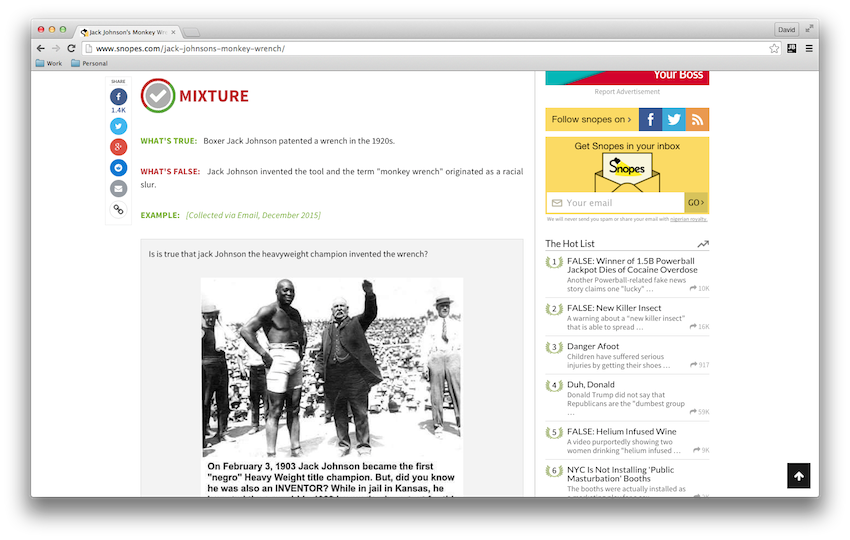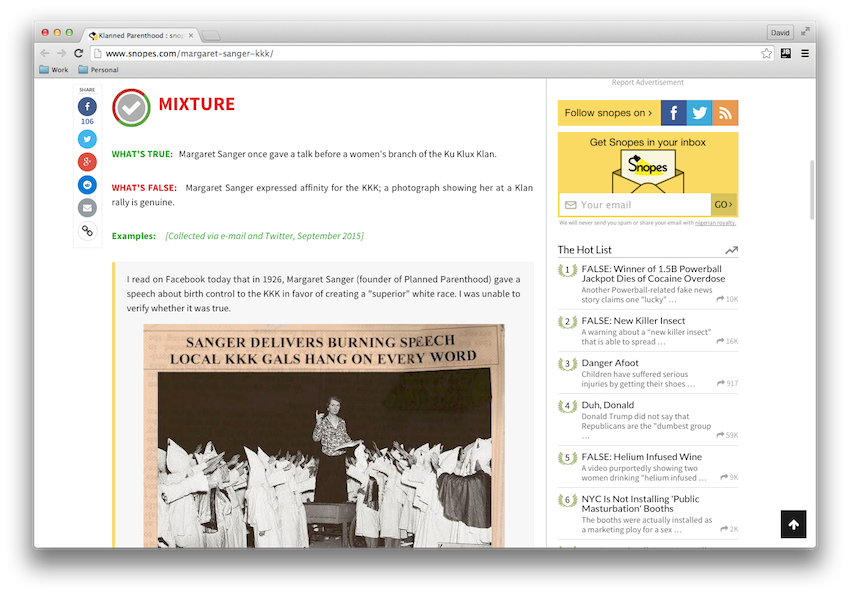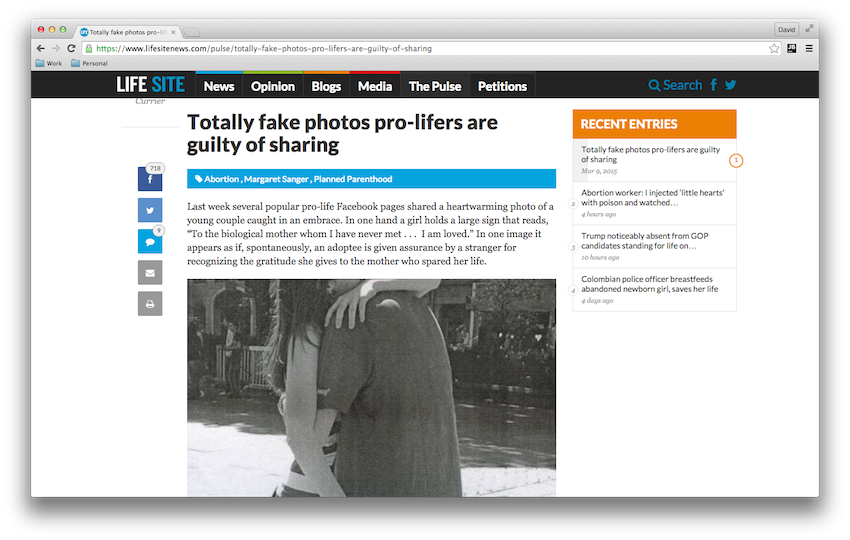Don’t be too eager to hit “Share”

Back in the early days of this blog, I wrote a post entitled Don’t be too eager to hit “Send”. In that post I spoke about how it’s prudent to exercise caution when sending email, particularly when you’re in a bad mood, as it’s very easy to send someone a nasty message which you may soon come to regret. Today’s post is something of a companion piece: Don’t be too eager to hit “Share”…

A common theme recently…
You might have noticed that quite a few recent posts here at Restless Pilgrim have been rebutting memes that I’ve seen posted on Facebook. Rebutting the statements in these images has been, on the whole, pretty easy. All that has been required is a little bit of fact-checking with Google and fact-checking websites such as Snopes.
One of my friends has a habit of reposting articles and memes without much apparent consideration. Some of them are relatively harmless. A few weeks ago he shared a post saying that Leslie Nielsen had just died, which was impressive since he’d died years earlier!

However, other posts my friend shared have been somewhat weightier:

As soon as I saw this image I was suspicious, so I looked up the etymology of the phrase “Monkey Wrench” and Snopes immediately confirmed that this was a hoax:
In Facebook it’s very easy to hit “Share” without giving too much consideration as to whether or not what you are sharing is true. More often than not, you will be sharing a meme or an article from a group you’ve joined or from a friend’s wall. As such, you’re likely to be predisposed not to question it too deeply. Whether or not you agree with me on issues of morality, politics or religion, I think we all want to be people of truth and, as such, I think we need to exercise some prudence and take some responsibility for what we share on social media.

A few months ago, a friend of mine posted the above picture on Facebook. Once again, I was suspicious so I did some googling and had my suspicions confirmed:
I sent my friend a message suggesting that he take down the picture. Margaret Sanger was a supporter of eugenics and was definitely racist, but the impact of this knowledge is considerably lessened if that is communicated through an image which is shown to be doctored. If I was pro-choice advocate and saw pro-lifers sharing a photoshopped image, I would wonder what else pro-lifers would be willing to lie about for the sake of their crusade against women’s health and freedom. It only takes one factual inaccuracy to call your entire case into question and the truth we’re trying to communicate.


